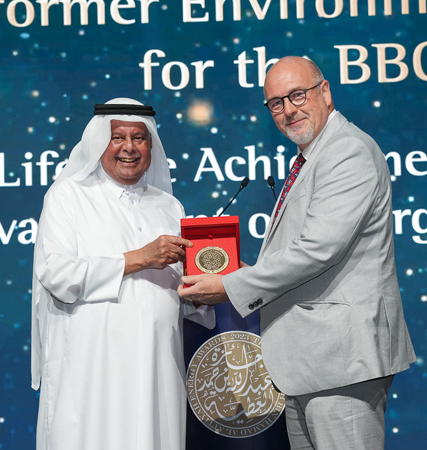Lifetime Achievement for the Advancement of Energy Journalism
Mr. Richard Black
Author and former Environment
In 2018, Mr. Richard Black’s book - Denied: The rise and fall of climate contrarianism – was published by The Real Press. The book, the only one to examine climate contrarianism in the UK, received critical acclaim from various news outlets, praising Mr. Black for his impeccable research and convincing writing style.
After completing a Natural Sciences degree at Cambridge University, Mr. Black joined BBC World Service radio where he worked as a producer and presenter on a wide range of live and pre-recorded programming including news and current affairs, sport, music, and drama. In 2001, he became the BBC’s Science Correspondent - leading the BBC World Service’s coverage of science, medicine, environment, and technology.
His documentary series ‘Warm World’ in 1998 was the BBC’s first long-form international exploration of the causes and impacts of climate change, and he also co-created ‘One Planet,’ the first BBC programme to examine international development and environmental issues jointly.
In 2004, Mr. Black was appointed as the BBC’s Environment Correspondent, a position he would hold for eight years. His reporting assignments included Rio+20; United Nations Framework Convention on Climate Change (UNFCCC) summits in 2006 and 2008-11; Convention on Biological Diversity (CBD) 2010; European Geosciences Union 2011; and multimedia field trips relating to issues such as carbon capture and storage; nuclear power; tidal power; amphibian conservation; whaling; sustainable forestry; aquaculture; and earthquake prediction.
After his tenure at the BBC, Mr. Black became Director of Communications for the Global Ocean Commission (GOC) and founded the Energy and Climate Intelligence Unit (ECIU), a non-profit think tank that supports informed debate on energy and climate change. ECIU challenged “fearmongering” and found engaging ways to present key information and evidence to journalists and parliamentarians, and led the communications work that facilitated the UK government introducing a net zero emissions target (the first G7 country to do so). His second book, The Future of Energy, will be published in 2024.
